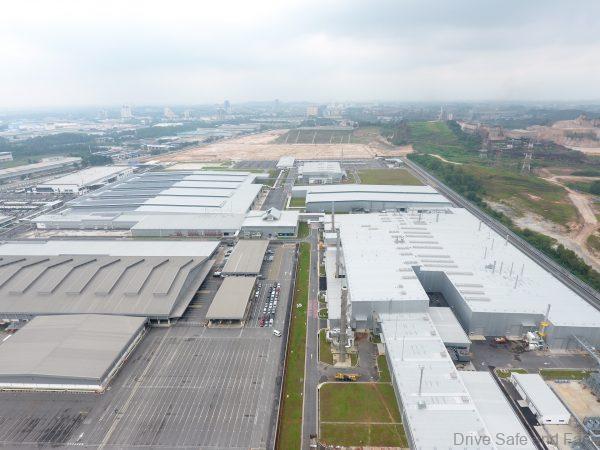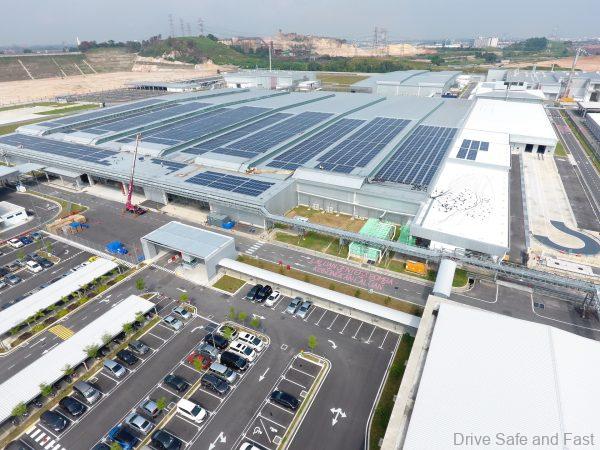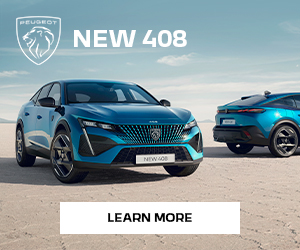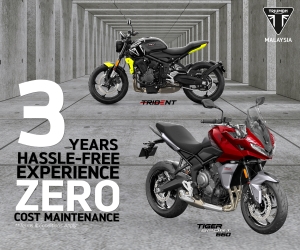UMW Toyota To Build Mass-Market Hybrid Vehicles In Malaysia
UMW Toyota Malaysia will start locally-manufacturing hybrids soon.
It’s finally happening – Toyota hybrids will start to be locally-assembled in Malaysia very soon. In a press release issued today, UMW Toyota Motor announced a commitment of RM270 million to expand their current manufacturing operations and facilities. This expansion will be start local assembly of Hybrid Electric Vehicles (HEVs) for the Malaysian public.
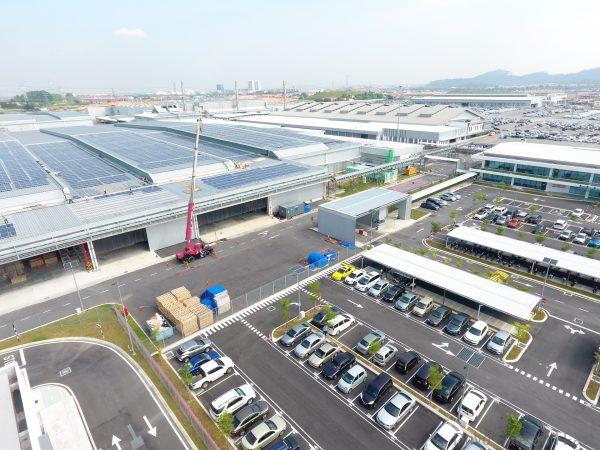
We reported last year that the company was planning on introducing a RAV4 Hybrid in Malaysia. Now it seems like the way they might do that would be to go down the route of local assembly. This will give them the tax incentives necessary to give the vehicle a reasonable price and customers good value for money. It’s also possible that a future Corolla Cross Hybrid will be assembled locally.
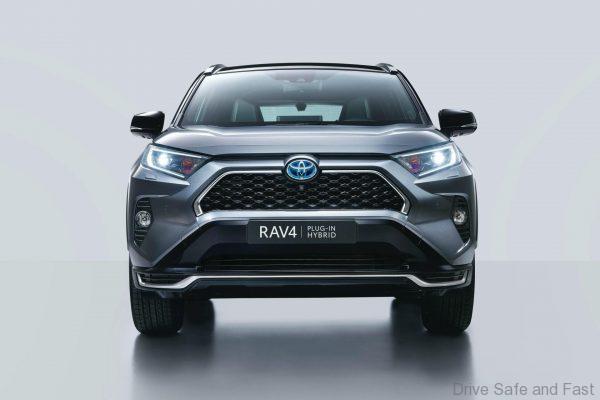
The RM270 million expansion will be to their Bukit Raja plant, which was an RM2 billion investment and one of the most modern, most advanced and most efficient Toyota plants in Asia.
The move towards more mass market hybrid vehicles is in-line with Toyota’s global goal to achieve carbon neutrality by 2050.

PRESS RELEASE
With 52 years of local production of Toyota vehicles in Malaysia, UMW Toyota Motor (UMWT) today announced its direction matched by exciting plans for the future of the automotive industry in the country, as it champions carbon neutrality to pave the way for the mass production of
Hybrid Electric Vehicles (HEV).
A GLOBAL VISION, A MALAYSIAN EFFORT
The initiative is driven by Toyota Motor Corporation’s (TMC) global commitment to deliver ‘mobility for all’ and produce ‘happiness for all’ through its commitment towards a ‘Clean, Safe and Secure Society’.
To realise this, TMC has committed to carbon neutrality by 2050, in a practical and sustainable manner. It is also part of the plan to produce a full line-up of Low-Emission Vehicles through its electrification plans. This will meet diversified mobility demands all over the world. Apart from Electrified Vehicles, there are many initiatives in the pipe-line to reduce carbon emissions and ‘offset’ the impact of carbon dioxide (CO2) emission in all its processes throughout the lifecycle of manufacturing, transporting, operating, fuel and/or charging, and recycling and disposal of vehicles – which is aligned with the global approach towards lifecycle assessments of the potential environmental impact of a product throughout its lifecycle.
“Toyota’s global direction is to achieve carbon neutrality by 2050. This is also in line with the Malaysian Government’s aspirations to position the country as a progressive nation that promotes more green technology and environmental sustainability,” said UMW Toyota Motor Deputy Chairman, Akio Takeyama.
“This is indeed an exciting time for the Malaysian automotive industry and UMW Toyota Motor is fully charged and ready to champion this Malaysian dream. In order to achieve this, the most realistic, practical and immediate solution is Toyota Hybrid Electric technology and vehicles,” he added.
“The mass production and growing acceptance of Hybrid Electric Vehicles (HEV) will lead to the entire automotive eco-system evolving to embrace a more conscious and concerted effort in reducing Malaysia’s carbon footprint.”
“Toyota’s direction is in line with the international lifecycle assessment approach for carbon neutrality which will entirely transform the industry, from the time a vehicle is manufactured and through the vehicle’s ownership, eventually even towards the end of the vehicle lifecycle,” he
added.
HYBRID ELECTRIC VEHICLES (HEV) THE IMMEDIATE WAY FORWARD
Toyota is one of earliest pioneers of Hybrid Electric technology and has evolved and advanced the technology over the last 20+ years. As of today, it has sold more than 17 million Hybrid Electric Vehicles (HEV); Plug-in Hybrid Electric Vehicles (PHEV); Battery-Electric Vehicles (BEV) and Hydrogen Fuel Cell Electric Vehicles (FCEV) worldwide. Toyota’s cumulative contribution to CO2 reduction equates to 17 million cars that has resulted in removing 140 million tonnes of CO2 or approximately 1.5 million conventional passenger vehicles per year over the past 20 years.
This conscientious push towards a cleaner, more efficient and sustainable alternative is projected to result in Toyota’s sale of 8 million electrified vehicles per year by 2030. In April this year, Toyota announced an electric vehicle strategy that will result in 15 new Battery-Electric Vehicles (BEV)
released by 2025. In total, Toyota is committed to have 70 electrified vehicle models by 2025, including vehicles powered by hydrogen fuel-cell electric, battery-electric, and hybrid electric, towards offering a range of “diverse choices” for its customers.
Toyota’s ongoing investments on four fronts hybrid electric; plug-in hybrid electric; battery-electric and hydrogen fuel cell positions it as one of the most versatile global auto manufacturers.
It has the agility to pivot its vehicle development towards the practical and sustainable solutions – where the eco-system, technology and infrastructure becomes viable, cost effective and widely accepted.
To leverage on this vision, UMW Toyota Motor will invest a further RM270 million locally into expanding its current manufacturing operations and facility. This amount includes, amongst others, the introduction of a new and technologically-advanced generation of Hybrid Electric Vehicles (HEV).
“We are ready (with the introduction of Hybrid Electric Vehicles), and the technology; service support; current infrastructure; global and domestic policies; the level of affordability and cost-effectiveness; and, consumer awareness and demand, particularly in Malaysia, are now at its most ideal conditions to pursue a new and exciting journey towards achieving carbon neutrality,” said Takeyama.
“Toyota Hybrid Electric Vehicles (HEV) are at their most advanced today, and presents itself as the most realistic, immediate, economical and practical solution for mass-market production and sale in terms of reduced CO2 emission, convenient usage, and price acceptance by customers,” Takeyama said.
Furthermore, research has shown that the reduction in CO2 emission levels between fully electric and Hybrid Electric Vehicles (HEV) are almost similar considering electricity source, and from production and throughout ownership.
For Malaysian car buyers, the local manufacturing of Toyota Hybrid Electric Vehicles (HEV) would translate into advancing into a new era of motoring, one that gives them access to the latest and most innovative technologies, at a price point that is practical and accessible to the greater masses.
“Hybrid Electric Vehicles (HEV) are a pivotal bridge to achieving full vehicle electrification. At present, the Battery Electric technology still requires time for full technology development making the Hybrid Electric technology most appropriate for immediate implementation. While time is still needed for full electrification, the HEV technology is ready today and the current infrastructure permits for it to be rolled out on a greater scale.” he said.
A LONG-TIME TRUSTED PARTNER TOWARDS A GREENER, MORE SUSTAINABLE FUTURE
With its sights firmly set on championing carbon neutrality in Malaysia, UMW Toyota Motor’s new investment is on top of an earlier RM2 billion that went into the construction and commissioning of its new plant in Bukit Raja. Regarded as one of the most modern, most advanced and most efficient Toyota plants in Asia, the Bukit Raja facility is already well positioned at the forefront of Malaysia’s aspiration to becoming a regional automotive hub in Energy Efficient Vehicles (EEV).
The plant’s environmental footprint includes the installation of 2MW of solar panels and in its ability to collect and recycle 156 cubic metres of rainwater. It also holds the distinction of featuring the lowest Volatile Organic Compound emissions in Asia with the installation of a Regenerative Thermal Oxidiser
“As a manufacturer, the immediate steps we can take to prevent global warming are to address our vehicles and manufacturing processes. But, the initiatives do not and cannot stop here. It involves a conscientious change in mindset in society, educating the young of the importance of protecting the environment and requiring the active participation of all stakeholders,” said Ravindran K., President of UMW Toyota Motor, adding that both Toyota and UMW Toyota Motor’s interests have gone beyond the automotive realm to offset the effects the CO2 emissions.
UMW Toyota Motor continues to be at the helm of numerous environmental action plans. In January this year, the company organized the 20th edition of its Toyota Eco Youth (TEY) program, an initiative that began 20 years ago, and has become a leading program cultivating environment consciousness and innovation amongst the youth of the nation involving schools, secondary school students and teachers.
“The ultimate goal will not rest solely on vehicle electrification, but to achieve carbon neutrality and zero emission on all fronts, from putting cleaner vehicles on the road and addressing manufacturing processes, to helping to create greater awareness for the protection of the environment,” he added.
ALIGNED WITH MALAYSIAN ASPIRATIONS
UMW Toyota Motor acknowledges with gratitude and appreciation, the Government’ key role and support towards the development of the automotive industry, to position Malaysia as a leader in automotive advancements and to ensure sustainable development of the local
automotive industry.
“We are in an ideal position to drive this ambition forward in making it a reality, and it is our hope that the Government will understand and support our endeavour for the local mass manufacturing of Hybrid Electric Vehicles (HEV) as an important cornerstone in the pursuit of wider electrification.” said Ravindran K.
“The COVID-19 pandemic resulted in a challenging year for us. However, measures put in place by the Government had successfully restored and strengthened consumer confidence and purchasing power within the automotive industry. This illustrates the key role that the Government plays in the development of the automotive industry here in Malaysia.”
“The introduction of Hybrid Electric technology will quickly transform the automotive landscape in Malaysia for Malaysians. We hope that our endeavours to popularise tomorrow’s technology today through the mass introduction of Hybrid Electric Vehicles (HEV) will receive due support from the Government in the pursuit of a full-scale realisation of vehicle electrification. We hope that the Government will also consider UMW Toyota Motor’s efforts to be included in the National Low Carbon Mobility Blueprint alongside Battery Electric Vehicle which is in line with the Government’s plans,” he added.



